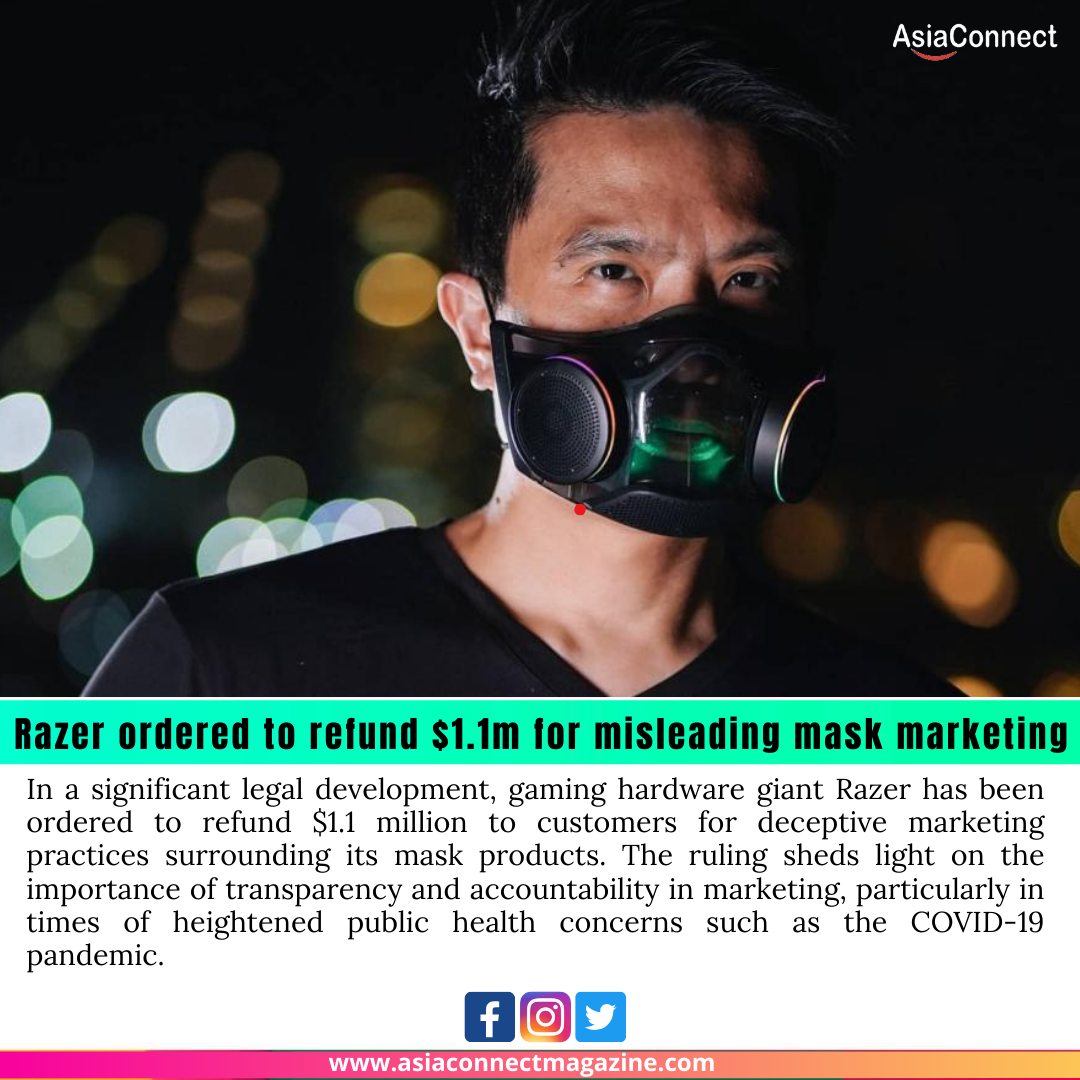In a significant legal development, gaming hardware giant Razer has been ordered to refund $1.1 million to customers for deceptive marketing practices surrounding its mask products. The ruling sheds light on the importance of transparency and accountability in marketing, particularly in times of heightened public health concerns such as the COVID-19 pandemic.
The controversy stems from Razer’s foray into the production and sale of masks in response to the global health crisis. Leveraging its brand visibility and technological expertise, Razer positioned itself as a provider of high-quality protective equipment, promising features such as advanced filtration and comfort.
However, investigations revealed that Razer’s marketing claims were misleading, with the masks failing to meet the advertised standards. Customers reported issues ranging from poor filtration efficacy to discomfort during prolonged use, raising concerns about the integrity of Razer’s product claims and marketing messaging.
The fallout from the controversy has prompted regulatory action, with authorities holding Razer accountable for deceptive practices. The $1.1 million refund order not only serves as restitution for affected customers but also sends a clear message about the consequences of misleading marketing in the midst of public health crises.
The case against Razer underscores the need for companies to uphold ethical standards and prioritize consumer trust, especially when marketing products that have implications for public health and safety. In an age where misinformation proliferates online, companies must exercise caution and diligence in ensuring that their marketing communications are accurate, transparent, and compliant with regulations.
For Razer, the refund order represents more than just a financial setback. It highlights the reputational risks associated with deceptive marketing practices and serves as a reminder of the importance of maintaining integrity and credibility in brand communications. Rebuilding trust with consumers will require genuine contrition, transparent communication, and tangible efforts to rectify past mistakes.
Moving forward, Razer must implement robust quality assurance processes and stringent compliance measures to prevent similar incidents from recurring. By prioritizing product integrity and consumer satisfaction, Razer can regain lost trust and reaffirm its commitment to ethical business practices.
Furthermore, the case serves as a wake-up call for the broader business community, highlighting the need for greater scrutiny and accountability in marketing practices, particularly in industries where health-related products are involved. As consumers become increasingly discerning and vocal about their expectations, companies must adopt a proactive approach to compliance and consumer protection.
In conclusion, Razer’s $1.1 million refund order underscores the repercussions of misleading marketing practices, particularly in the context of public health crises. The case serves as a cautionary tale for companies navigating the complexities of marketing sensitive products and reinforces the imperative of transparency, integrity, and accountability in brand communications. By learning from past mistakes and prioritizing consumer trust, companies can mitigate risks, safeguard their reputations, and foster long-term success in an increasingly vigilant marketplace.





